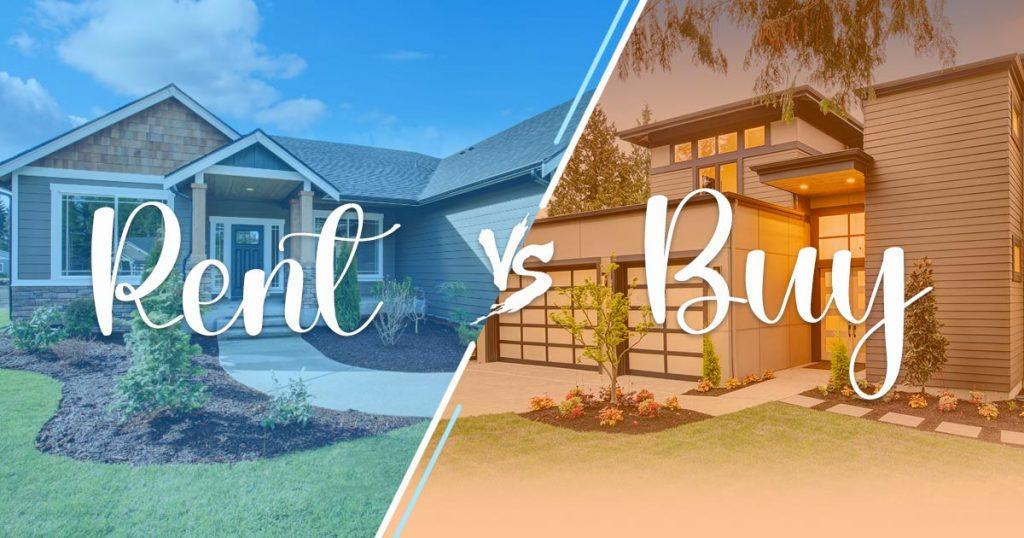When deciding where to live, the choice between renting and buying a home is pivotal. Both options come with their own set of advantages and considerations. This blog delves into the advantages of renting a home instead of buying, exploring why renting may be the preferred choice for many individuals and families.
Renting vs. Buying a Home
Renting a home offers distinct advantages over buying, particularly in terms of flexibility and financial commitments. Renters enjoy the freedom to move without the long-term commitment and financial implications that come with homeownership. This flexibility is especially valuable for those who may need to relocate due to work, lifestyle changes, or other personal reasons. Additionally, renting avoids the complexities associated with buying, such as property taxes, maintenance costs, and fluctuating property values.
Reasons Why Renting Could Be Better than Buying
Renting a home presents several compelling advantages that make it an appealing option for many individuals and families:
No Maintenance Costs or Repair Bills
One of the most significant benefits of renting is the absence of maintenance costs and repair bills. When renting, tenants are typically not responsible for major repairs or upkeep. These responsibilities are handled by the landlord or property management company. This arrangement not only saves renters money but also relieves them of the stress and inconvenience of unexpected maintenance expenses. Whether it’s fixing a leaky roof or repairing a malfunctioning appliance, renters can rest assured that these issues are promptly addressed by the property owner.
No Down Payment
Renting requires minimal upfront costs compared to buying a home, which often demands a substantial down payment. For many renters, this lower financial barrier makes renting a more accessible option, especially for those who may not have substantial savings readily available for a down payment. By renting, individuals and families can secure a comfortable living space without the immediate need for a large lump sum, allowing them to allocate their finances towards other priorities such as savings, investments, or personal goals.
No Real Estate Taxes
Property taxes can be a significant financial burden for homeowners, but renters are not responsible for these costs. Property taxes are the responsibility of the property owner, allowing renters to avoid this additional expense. This financial advantage gives renters more flexibility in managing their monthly budget and allocating funds towards essentials and discretionary expenses that enhance their quality of life.
Fixed Rent Amount
Renters benefit from predictable housing costs with a fixed rent amount. Unlike homeowners who may face fluctuating mortgage payments due to changes in interest rates or adjustments in property taxes, renters can budget more effectively knowing their monthly rent remains stable throughout their lease term. This financial predictability allows renters to plan for future expenses and make informed financial decisions without the uncertainty that can accompany homeownership.
Lower Insurance Costs
Rental insurance costs are generally lower than homeowners insurance premiums. This financial advantage not only reduces monthly expenses but also provides renters with essential coverage against liabilities and protection for personal belongings. Rental insurance typically covers losses due to theft, damage, or liability claims, offering peace of mind without the higher costs associated with homeownership insurance policies.
Downsize Anytime
Renting offers the flexibility to downsize living space as needed without the complexities of selling a property. Whether adjusting to changes in financial situations, lifestyle preferences, or family dynamics, renters have the freedom to choose a living space that meets their current needs without long-term commitments. This flexibility is particularly valuable during life transitions such as retirement, career changes, or downsizing due to changes in family size.
Few Concerns About Decreasing Property Value
Renters are not affected by fluctuations in property values, which can significantly impact homeowners. Changes in property values do not affect renters’ financial stability or housing decisions, allowing them to focus on their immediate housing needs without concerns about market conditions. This stability provides renters with peace of mind and the ability to make housing decisions based on personal preferences and lifestyle considerations rather than market trends.
Lower Utility Costs
Many rental properties include utilities such as water, trash removal, and sometimes even electricity or internet services as part of the rental agreement. These bundled utilities often result in lower overall monthly expenses compared to homeownership, where homeowners are responsible for all utility costs separately. This cost-saving benefit allows renters to enjoy essential services without the added financial burden of fluctuating utility bills, contributing to greater financial stability and predictable monthly expenses.
Flexibility As to Where to Live
Renting provides individuals with the flexibility to choose where they want to live based on current circumstances and preferences. Whether seeking proximity to work, schools, or preferred amenities such as parks, shopping centers, or cultural attractions, renters can select a location that enhances their quality of life and meets their daily needs. This flexibility allows renters to explore different neighborhoods or cities without the long-term commitment and financial implications associated with homeownership, ensuring they find a living environment that best suits their lifestyle and personal preferences.
Access to Amenities
Many rental properties offer access to amenities such as pools, gyms, community centers, and outdoor spaces as part of the rental agreement. These amenities contribute to a higher quality of life without the maintenance responsibilities that come with owning such facilities. Renters can enjoy these perks as part of their rental experience, enhancing their overall living experience and providing opportunities for recreation, socializing, and relaxation without the added costs and upkeep responsibilities associated with private ownership.
Renting a Home is the Better Option
Renting a home offers numerous advantages that make it an attractive housing option for many individuals and families. From financial flexibility to reduced maintenance responsibilities, renting provides the benefits of a home without the long-term commitments associated with homeownership. Whether prioritizing financial predictability, lifestyle flexibility, or access to amenities, renting allows individuals to enjoy a comfortable and fulfilling living arrangement without the complexities of owning property.
